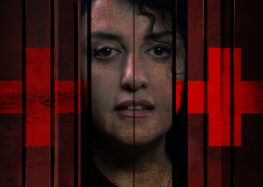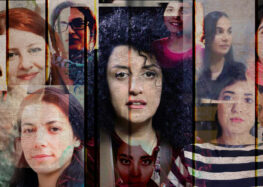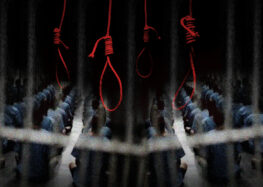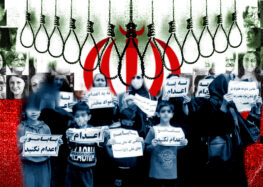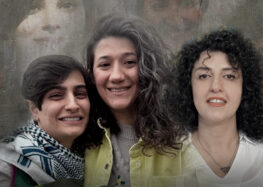“Confess on TV or Go to Prison,” Authorities Tell Dadkhah
 Human rights lawyer Mohammad Ali Dadkhah told the International Campaign for Human Rights in Iran that he has been under immense pressure during recent days to make false televised confessions. “Tomorrow is my last day to either make television confessions or go to prison. I will go to prison, and I will not [be forced to] leave my homeland,” he said.
Human rights lawyer Mohammad Ali Dadkhah told the International Campaign for Human Rights in Iran that he has been under immense pressure during recent days to make false televised confessions. “Tomorrow is my last day to either make television confessions or go to prison. I will go to prison, and I will not [be forced to] leave my homeland,” he said.
Dadkhah told the Campaign that he would never make fake confessions. “They told me that if I didn’t confess, they would enforce my sentence. They talked to me for long periods of time and I did not accept it. I will say now that if one day I say things, they are not credible and I must have been under conditions where I was forced to say those things. I hope God maintains my power.”
“Under intense pressure, they asked me to say before television cameras that the Defenders of Human Rights Center (DHRC) received funds from foreigners, meaning that we were operators for foreigners, which is not true,” said Dadkhah. The now-banned Defenders of Human Rights Center was co-founded by prominent human rights lawyers including Narges Mohammadi, Abdolfattah Soltani, Mohammad Seifzadeh, and Nobel Peace Prize laureate Shirin Ebadi.
Dadkhah described the work of the DHRC: “We were a number of lawyers who for our love for our land, our capabilities, and our professional knowledge started the Center and we worked there. Among Iranian lawyers, perhaps a group like ours is rare, a group that has knowledge, capability, and awareness about their work and is so affectionate towards our homeland.”
On 28 April, when Mohammad Ali Dadkhah appeared at Branch 15 of Tehran Revolutionary Court to defend his client, Arjang Davoodi, who has been sentenced to death, the Judge informed him that he was not allowed to defend his client, as his nine-year prison sentence has been upheld by an Appeals Court, and that he would be sent to prison soon.
The prominent lawyer has represented dozens of cases of prisoners of conscience, including Ebrahim Yazdi, Hossein Ronaghi Maleki, and Youcef Nadarkhani, a Christian pastor sentenced to death for moharebeh (enmity with God).
“I believe it unjust to put someone under pressure and tell him to go talk on television and say that he received money from abroad. I was nominated for several foreign awards, and I said that I would only accept these awards if they are not accompanied with money. I have only accepted awards that have no money. Also, I never received any money from my clients whom I defended for their human rights and I consider this my honor. Now, I find it inappropriate for myself to go say those things on TV,” Dadkhah told the Campaign.
When asked what would happen to his clients’ cases when he is sent to prison, he said, “Those who have violated my human rights should answer that. I have done nothing but to do my professional work. My field is international law. My human rights thesis received an A+. If there is a fair and just system, I should not be treated like this.”
On 20 May 2011, Branch 15 of Tehran Revolutionary Court tried Dadkhah on multiple charges such as “membership in the Defenders of Human Rights Center,” “interviewing with foreign media,” and “representing the Isfahan Underground Metro case.” According to the lower court’s ruling, which was announced in July 2011, he was sentenced to nine years in prison and a ten-year ban on practicing and teaching law. The appeals court upheld Dadkhah’s sentence in its entirety.
Currently, almost all prominent members of the DHRC, including Nasrin Sotoudeh, are in prison.


